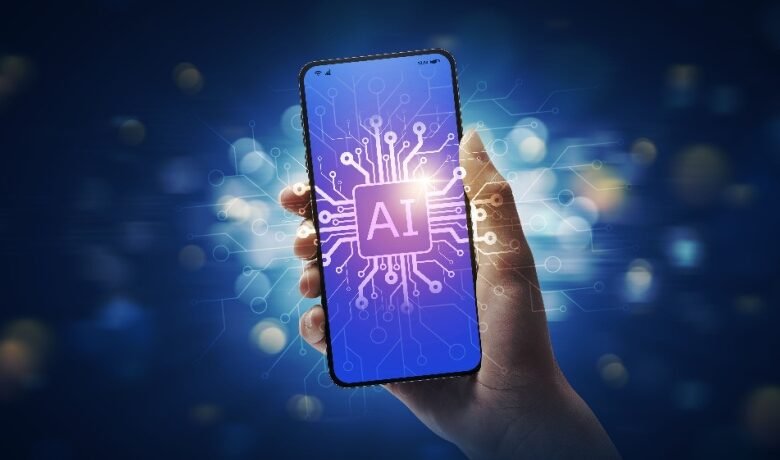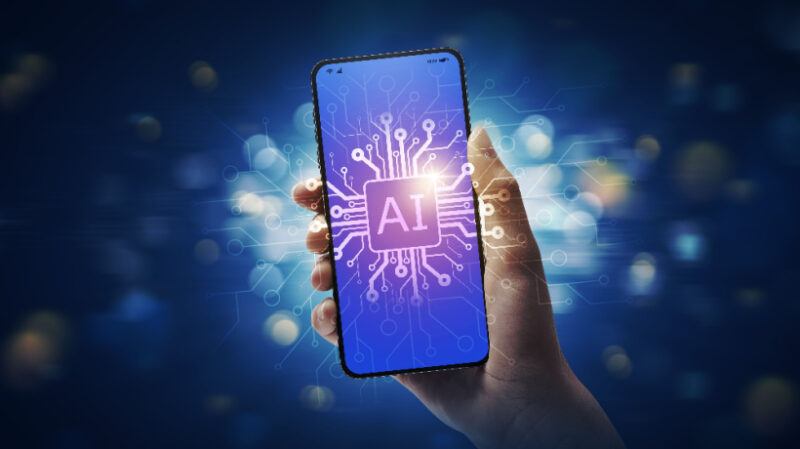How AI In eLearning Apps Is Transforming Modern Education


AI In eLearning Apps: Revolutionizing Education
eLearning, or online learning, has rapidly grown in popularity over the past few years. It allows students to access courses and study materials from anywhere, making education more flexible and convenient. As more learners choose online education, the possibilities for eLearning continue to grow.
Artificial Intelligence (AI) refers to the technology that enables machines to perform tasks that typically require human intelligence, such as understanding language and making decisions. In the field of education, AI offers exciting possibilities for improving how we learn and teach. AI is changing eLearning to make it more personalized, accessible, and efficient. By using smart tools that adapt to each learner’s needs, provide instant feedback, and simplify administrative tasks, AI enhances the educational experience for both students and teachers.
This article will explore how AI is shaping the future of eLearning and improving education for everyone. Let’s explore how AI is transforming modern education through eLearning apps.
How AI-Powered eLearning Apps Are Changing Education
1. Personalized Learning Experiences
Traditionally, education has used a one-size-fits-all approach, where students are taught in the same manner regardless of their learning styles or needs. However, AI is changing this by offering personalized learning experiences. AI algorithms can analyze a student’s interactions with an eLearning platform, assessing their strengths, weaknesses, and preferences.
For example, if a student struggles with a specific math concept, AI can identify this difficulty and provide additional resources, such as practice exercises, video tutorials, or interactive simulations. This tailored approach ensures that students receive the support they need, allowing them to learn at their own pace and focus on areas requiring improvement. Personalization not only enhances understanding but also increases motivation, as students feel more in control of their learning journey.
2. Smart Content Creation
In addition to personalizing learning, AI is also changing how educational content is created. With the ability to analyze vast amounts of data, AI can generate smart content that is more relevant and engaging for students. This includes interactive quizzes, videos, and simulations that enhance the learning experience.
For instance, AI tools can evaluate existing educational materials and suggest updates or new content based on current trends and developments in various fields. This ensures that students have access to the most up-to-date information. Additionally, AI can create customized learning paths based on students’ interests and career goals, allowing them to explore subjects that align with their aspirations. By making learning more relevant, AI encourages students to engage deeply with the material.
3. 24/7 Availability And Support
One of the most significant advantages of eLearning apps powered by AI is their availability. Unlike traditional classrooms with fixed schedules, eLearning allows students to learn whenever and wherever they choose.
Moreover, AI-driven chatbots provide instant support, answering students’ questions and guiding them through challenging concepts at any time. Whether it’s clarifying a lesson or providing additional resources, AI chatbots ensure that students are never left without help. This constant availability fosters a sense of independence and self-direction, empowering students to take charge of their learning.
4. Assessment And Feedback
Assessment is a crucial aspect of the learning process, and AI simplifies it significantly. Traditionally, students often had to wait days or even weeks for feedback on assignments and quizzes. With AI, however, instant feedback becomes possible. When a student completes a quiz, AI can analyze their answers and provide immediate results, allowing them to understand their mistakes and learn from them right away.
Furthermore, AI can track patterns in student performance over time. By analyzing data, AI can identify areas where students are excelling or struggling, helping educators to tailor their instruction accordingly. This insight helps teachers focus their efforts on students needing extra support, ensuring no one falls behind. Additionally, this data-driven approach can inform curriculum development, making it more responsive to student needs.
5. Gamification Of Learning
Gamification, the integration of game-like elements into the learning process, is another area where AI is making a significant impact. By incorporating features such as points, badges, and leaderboards, eLearning apps can make learning more engaging and motivating for students.
AI can track a student’s progress and suggest challenges that match their skill level, keeping them engaged and encouraging them to improve. For instance, if a student consistently performs well in a particular subject, the app can introduce more complex tasks or advanced levels, pushing them to expand their knowledge and skills. This gamified approach not only makes learning fun but also fosters healthy competition among peers, encouraging collaboration and motivation.
6. Accessibility For All
In addition to enhancing the learning experience for individual students, AI in eLearning apps promotes accessibility for all learners. Students with disabilities often encounter accessibility barriers in traditional classrooms. However, AI can provide valuable tools to help them succeed.
For example, AI can enable speech recognition and text-to-speech functionalities, allowing students with visual impairments or reading difficulties to engage with content more easily. Additionally, AI can offer tailored resources based on individual learning requirements, ensuring that every student has access to quality education.
7. Lifelong Learning And Skill Development
In our rapidly changing world, lifelong learning is becoming increasingly important. AI-powered eLearning mobile apps support this by providing ongoing opportunities for skill development. Whether it’s acquiring new technical skills or enhancing soft skills, these platforms offer courses and resources that align with industry demands.
AI can identify emerging trends and skills that are relevant in the job market, allowing educational institutions to adapt their curricula accordingly. This proactive approach to education ensures that students are equipped with the knowledge and skills needed to succeed in their careers. Furthermore, the ability to learn at their own pace encourages adults to engage in continuous learning, helping them stay competitive in the workforce.
Conclusion
AI is transforming eLearning by making education more tailored to individual needs. This technology not only helps students learn at their own pace but also keeps them engaged through interactive content. As AI continues to advance, it can make learning more accessible for everyone, ensuring that all students have the opportunity to succeed, no matter their background or challenges. The future of education is brighter with AI, offering new ways to learn and grow.
Source link





